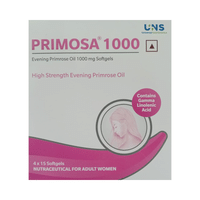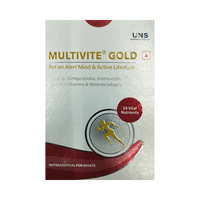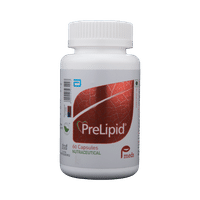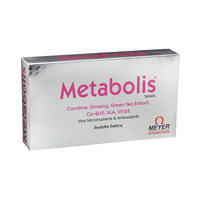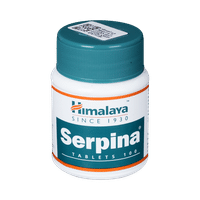Rs.61.80for 1 strip(s) (15 tablets each)
food interaction for Biodipin AT
alcohol interaction for Biodipin AT
pregnancy interaction for Biodipin AT
lactation interaction for Biodipin AT
food
alcohol
pregnancy
lactation
Biodipin AT 5mg/50mg Tablet is to be taken empty stomach.
None
None
CAUTION
It is unsafe to consume alcohol with Biodipin AT 5mg/50mg Tablet.
UNSAFE
Biodipin AT 5mg/50mg Tablet is unsafe to use during pregnancy as there is definite evidence of risk to the developing baby. However, the doctor may rarely prescribe it in some life-threatening situations if the benefits are more than the potential risks. Please consult your doctor.
CONSULT YOUR DOCTOR
Biodipin AT 5mg/50mg Tablet is probably unsafe to use during breastfeeding. Limited human data suggests that the drug may pass into the breastmilk and harm the baby.
CONSULT YOUR DOCTOR
SALT INFORMATION FOR Biodipin AT
Amlodipine(5mg)
Uses
Amlodipine is used in the treatment of Hypertension (high blood pressure) and Angina (heart-related chest pain).
How it works
Amlodipine is a calcium channel blocker. In high blood pressure, it normalizes the blood pressure by relaxing the blood vessels to reduce the pressure on them, thereby improving the blood flow in the body. The enhanced blood flow in the body, further relaxes the heart muscles by reducing the workload on the heart. It also improves the oxygen flow in the body, thereby, preventing any heart-related chest pain.
Common side effects
Headache, Nausea, Abdominal pain, Flushing (sense of warmth in the face, ears, neck and trunk), Dizziness, Palpitations, Edema (swelling), Hypotension (low blood pressure), Chest pain, Fainting, Muscle cramp, Visual disturbance, Shortness of breath, Change in bowel habits, Weakness, Insomnia (difficulty in sleeping), Mood changes, Depression, Tremors, Taste change, Hypoesthesia (decreased sensitivity to stimuli), Paresthesia (tingling or pricking sensation), Arrhythmia (irregular heartbeats), Vomiting, Dryness in mouth, Rash, Muscle pain, Back pain, Frequent urge to urinate, Impotence, Breast enlargement in male, Decreased white blood cell count (lymphocytes), Low blood platelets, Allergic reaction, Increased glucose level in blood, Confusion, Hypertonia (increased muscle tone), Pancreatic inflammation, Gingival hyperplasia, Hepatitis (viral infection of liver), Angioedema (swelling of deeper layers of skin), Stevens-Johnson syndrome
Atenolol(50mg)
Uses
Atenolol is used in the treatment of Hypertension (high blood pressure), Angina (heart-related chest pain), Arrhythmia and heart attack.
How it works
Atenolol is a beta blocker that works specifically on the heart. It works by slowing down the heart rate and makes the heart more efficient at pumping blood throughout the body. The exact mechanism by which Atenolol prevents migraines is not established yet and may vary from person to person. Atenolol can prevent migraines by decreasing the excitability of the nervous system. Atenolol is also believed to decrease the dilation of blood vessels that are responsible for migraine.
Common side effects
Fatigue, Slow heart rate, Dizziness, Cold extremities, Headache, Gastrointestinal disturbance, Sleep disturbance, Increased transaminase level in blood, Purpura, Low blood platelets, Mood changes, Confusion, Psychosis, Hallucination, Paresthesia (tingling or pricking sensation), Visual disturbance, Impotence
SUBSTITUTES FOR Biodipin AT
665 Substitutes
665 Substitutes
Sorted By
 Rs. 77.75pay 83% more per Tablet
Rs. 77.75pay 83% more per Tablet Rs. 53.95save 19% more per Tablet
Rs. 53.95save 19% more per Tablet Rs. 302.76pay 144% more per Tablet
Rs. 302.76pay 144% more per Tablet Rs. 242pay 279% more per Tablet
Rs. 242pay 279% more per Tablet Rs. 179.78pay 190% more per Tablet
Rs. 179.78pay 190% more per Tablet
Expert advice FOR Biodipin AT
- You have been prescribed Amlodipine to improve your blood pressure and/or to reduce the number and severity of angina attacks.
- Lowering blood pressure reduces the chance of future heart attack and stroke.
- Take it at the same time every day to help you remember to take it.
- A sudden drop in your blood pressure may occur, especially when you first start taking Amlodipine. To lower the chance of feeling dizzy or passing out, rise slowly if you have been sitting or lying down.
- It can cause ankle or foot swelling. To reduce the swelling, raise your legs while you are sitting down. Talk to your doctor if it does not go away.
- It may cause dizziness. Do not drive or perform any activity that requires mental focus until you know how Amlodipine affects you.
- Inform your doctor if you are pregnant, planning a pregnancy or breastfeeding.
Frequently asked questions FOR Biodipin AT
Amlodipine
Q. How long does it take for Amlodipine to work?
Amlodipine starts working on the day it is taken. However, it may take weeks to see the full effect. You should continue taking the medicine even if you feel better or if you do not notice any considerable difference. Consult your doctor if you have any concerns or you feel worse after taking the medicine.
Q. Does Amlodipine cause itching?
Amlodipine may cause itching in some patients, though it is an uncommon side effect. However, if you experience severe itching contact your doctor.
Q. Is Amlodipine bad for the kidneys?
No, there is no evidence that Amlodipine causes deterioration of kidney problems. Amlodipine can be used in normal doses in patients with kidney problems. In fact, its blood pressure-lowering effect, it helps to prevent injury to the kidneys due to hypertension.
Atenolol
Q. How many hours does Atenolol take to reduce high blood pressure?
Usually, Atenolol starts working within 3 hours, but it can take up to 2 weeks to reach its full effect. You may not feel any difference in blood pressure after taking the medicine, but this does not mean that the medicine is not working. It is important to keep taking your medicine in the prescribed dose and duration to get the maximum benefit of Atenolol.
Q. Should I take Atenolol in the morning or at night?
Atenolol can be taken anytime in the morning or evening, usually prescribed once or twice daily. However, your very first dose of Atenolol may make you feel dizzy, so it is better to take your first dose at bedtime. After that, if you do not feel dizzy, you may take it any time of the day. Follow the advice of your doctor. It is advised to take it at the same time each day so that you remember to take it and consistent levels of medicine are maintained in the body.
Q. What if I forget to take a dose of Atenolol?
If you have missed a dose of Atenolol, take it as soon as you remember. However, if it is almost time for your next dose, skip the missed dose and take the next scheduled dose. Do not double the dose to make up for the missed one as this may increase the chances of developing side effects.















